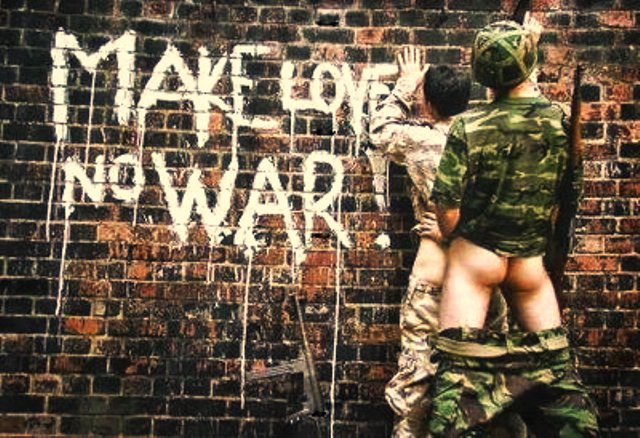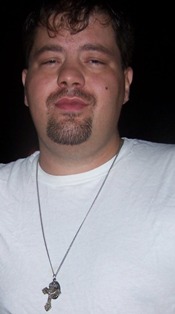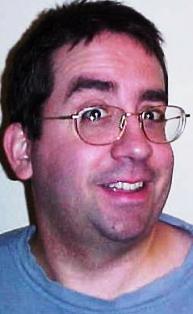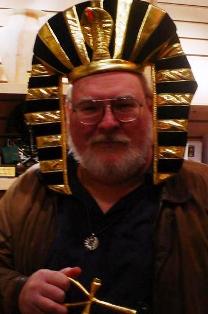
Military ouster of gays plunges
By Rowan Scarborough
January 21, 2008
The U.S. military says it is enforcing the ban on open homosexuals in the ranks, as it has for decades, in the face of statistics that show a sharp drop in the number of discharged homosexuals as wars in Afghanistan and Iraq continue.
Homosexual rights advocates cite the plunge as evidence that the military is losing interest in enforcement and lets openly homosexual men and women serve because commanders need every able-bodied troop.
"Truth be told, I don't think the Pentagon is a big fan of the law anymore," said Steve Ralls, spokesman for Servicemembers Legal Defense Network, which is pushing for the ban's demise.
The Pentagon provided a statement to The Washington Times saying it still enforces the exclusion, which was modified in the early 1990s under a policy known as "don't ask, don't tell."
"Our policy implements the law Congress passed after prolonged research and debate," said Pentagon spokeswoman Eileen Lainez. "The Department will continue to follow congressional mandate on homosexual conduct. This law requires the Department of Defense to separate from the armed forces members who engage in or attempt to engage in homosexual acts; state they are homosexual or bisexual; or marry or attempt to marry a person of the same biological sex."
Ms. Lainez said "we can't speculate as to why the number of discharges has declined" from 1,273 in 2001 to 612 in 2006.
Mr. Ralls understands the decline as "clear evidence that traditionally during a time of war lesbian and gay discharges decline," he said. "Commanders recognize the value of having good quality service members on the job regardless of what their sexual orientation may be."
Elaine Donnelly, who runs the Center for Military Readiness, said no comprehensive evidence supports that theory. She thinks fewer homosexuals are joining the military.
"It's just logical," she said. "If the military is having difficulty recruiting people in general because a war is going on, it discourages people in general and that would include homosexual recruits. The advocates of gays in the military prefer to try to take statistics out of context and then try to make their argument accordingly."
She said anecdotal evidence shows that the military allows personnel to leave service rather than pursuing a homosexual-driven discharge.
The issue of homosexuals in the military — once thought settled in 1993 with President Clinton's adoption of "don't ask, don't tell" — has resurfaced in the current presidential election.
All three leading Democratic candidates, including Sen. Hillary Rodham Clinton of New York, say that if they win the White House they will ask Congress to change the law and allow open homosexuals in the ranks.
The U.S. military for years has maintained that homosexuality hurts unit cohesion.
The rules for "don't ask, don't tell" are clear. The military is not to ask recruits whether they are homosexual. In turn, service members are to be discharged if they disclose their sexuality, either verbally or by conduct. At the unit level, it is up to superiors to move to discharge. Mr. Ralls contends that, in more and more cases, commanders are ignoring the "tell" because they need the service member. The Pentagon rejects that contention.
At the unit level, it is up to superiors to move to discharge. Mr. Ralls contends that, in more and more cases, commanders are ignoring the "tell" because they need the service member. The Pentagon rejects that contention.
Homosexual rights activists are publicizing the case of Sgt. Darren Manzella, an Army medic. He told CBS' "60 Minutes" that he disclosed his homosexuality to superiors in 2005 in Iraq and 2006 in Kuwait, but remains in the Army today.
"Individual commands have always had broad latitude in how they implement the law," Mr. Ralls said.

10 April 2008
DADT enforcement declines for Stop loss?
Chicken Scratched by
F6's Editor
at
02:14
![]()
Labels: Gays in the Military, Stop Loss
Subscribe to:
Post Comments (Atom)
give medals 4 killing men but 4 loving men they wish you were dead?

thanks to the sacrifice of many the scourge of Dont Ask Dont Tell in the land of the free and home of the brave will be gone by the end of June!!!!
















No comments:
Post a Comment